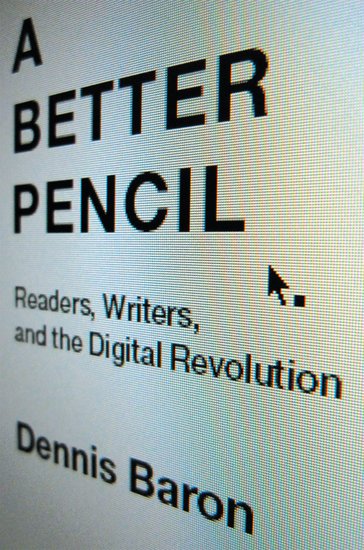On the internet, nobody knows you can’t spell
By Dennis Baron
The English Spelling Society has released a report blaming the internet for what it sees as the current epidemic of bad spelling: “The increasing use of variant spellings . . . has been brought about by people typing at speed in chatrooms and on social networking sites where the general attitude is that there isn’t a need to correct typos or conform to spelling rules.”
Many people have come to the same conclusion, despite the fact that, by popular demand, almost all of our digital devices come equipped with unforgiving spell-checkers that mark every mistake with bright red lynes lines.










